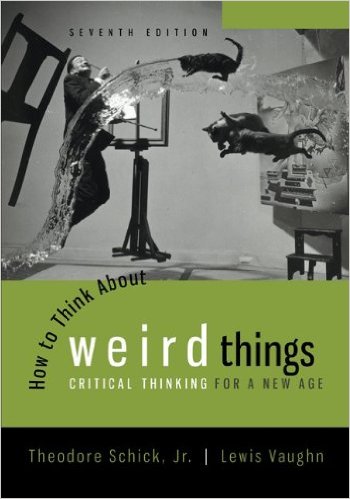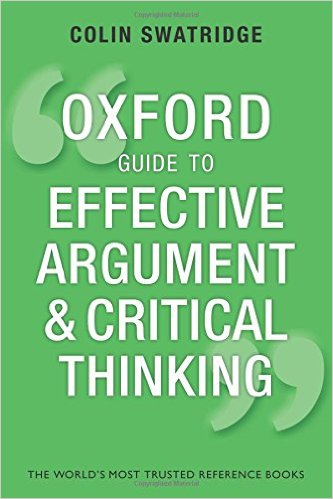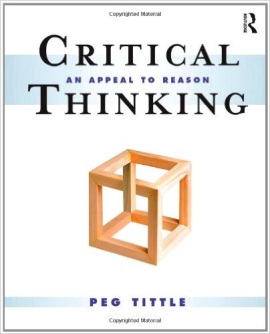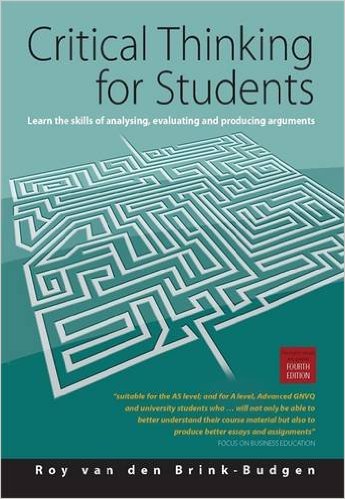
|
Designed to enhance academic study skills with practical tips and solutions, this guide introduces key strategies for better critical, reflective and creative thinking. It covers problem-solving, idea and data assessment and production, as well as decision-making.
Highlights include a section on group work and collaboration (pp.104-119), a section on how to use teacher feedback (pp.247-254) and a section on how to communicate your critical thinking skills in the job application process (pp.254-267).
|

|
If you believe in the supernatural, paranormal and mysterious, this book may change the way you think. Using examples from pseudoscience and other myths, this introduction to critical reasoning covers the skills needed to distinguish scientific fact from fiction in extraordinary or unusual circumstances.
Highlights include guided critical readings and discussion questions in every chapter, as well as a section on why you cannot always believe what you see (pp.99-107) and a chapter on case studies in the extraordinary (pp.220-90).
|

|
This book offers a concise introduction to the essentials of critical writing, using examples and questions from both contemporary and historical contexts. Designed as a practical tool, this Oxford guide will take you through the key steps involved in the development of strong arguments, with a special emphasis on writing in the humanities and social sciences.
Highlights include chapter summaries of key points, mistakes to avoid, as well as strategies to evaluate the arguments of others.
|

|
Strong reasoning skills prevent you from falling into thinking traps, and help you make better decisions and convince others more effectively. Peg Tittle’s book goes beyond reading and writing to also include the analysis of images, ads and spoken discourse, in order to give you a complete introduction to critical reasoning.
Highlights include stimulating questions in every chapter, templates for the analysis of arguments, actual questions from reasoning tests such as the LSAT, GMAT and GRE, as well as a companion website with audio and video recordings for critical analysis.
|

|
Asking the right questions is an essential part of critical thinking. This book takes the questioning process as a starting point to cover the main aspects of critical thinking applied to academic reading and writing. The text is easy to follow thanks to a clear and accessible approach, and the examples are taken from familiar situations that facilitate the understanding of concepts.
Highlights include sections on weaknesses in reasoning (pp.57-82) and on the credibility of evidence (pp.98-103), as well as a final chapter that recaps all key points.
|